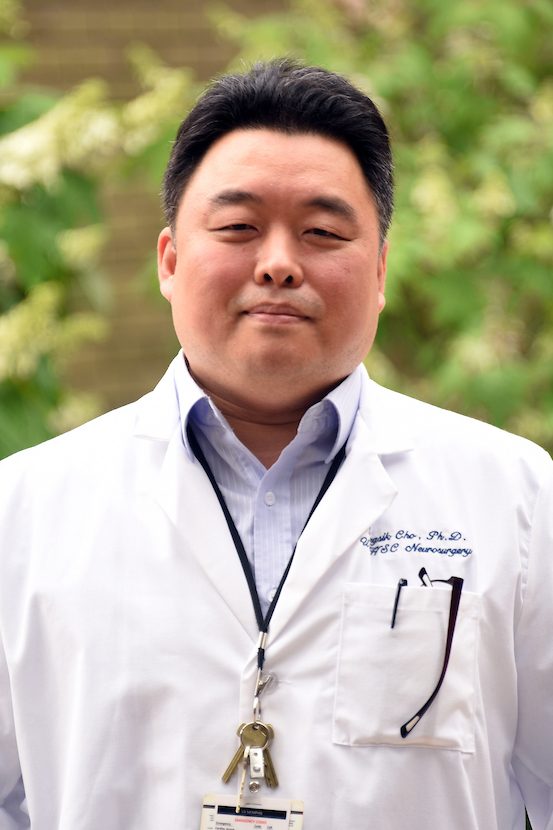Hongsik Jake Cho, PhD, associate professor in Orthopaedic Surgery and Biomedical Engineering at the University of Tennessee Health Science Center (UTHSC), recently received a $1.56 million Rehabilitation Research and Development Award from the U.S. Department of Veterans Affairs to research next generation treatments for post-traumatic osteoarthritis.

Post-traumatic osteoarthritis (PTOA), a disabling condition that can occur after a single or repeated injury, is a major cause of disability in younger individuals. Veterans in particular are at high risk of developing this condition. No effective treatment exists for PTOA, but there is promising research in regenerative medicine using stem cells, which can potentially heal damaged joints affected by osteoarthritis.
A major challenge in developing such treatment is the difficulty of keeping stem cells alive and healthy after they are transplanted into the affected joint. Post-transplantation, stem cells face various stress factors, such as inflammation-causing substances and harmful molecules without oxygen. These factors can cause the stem cells to die and undergo apoptosis (programmed cell death).
In this project, Dr. Cho will investigate a two-step approach to improve the unhealthy environment in the arthritic knee joint. The first step involves using tiny particles called nanosomes to directly deliver specific anti-inflammatory and antioxidant substances to the affected area. This treatment aims to reduce inflammation and counteract the harmful effects of oxidative stress.
The second step involves enhancing the longevity of transplanted stem cells through a pre-transplantation antioxidant treatment. This procedure is designed to provide these stem cells with an extended timeframe to exert their immune-suppressive functions and engage in cartilage repair. The unique pretreatment method using Dr. Cho’s nanosome technique stands to improve stem cell viability relative to conventional cell injection strategies. This intervention will be tested in an animal model to gather information for potential future treatments in patients.
“By studying this treatment strategy, we hope to develop a better understanding of how to improve the conditions in arthritic joints and increase the chances of successful stem cell therapy,” Dr. Cho said. “This research is an important step in bringing new treatments to patients with PTOA.”
The title of Dr. Cho’s project is “An Innovative Two-Step Therapeutic Strategy to Maximize the Effect of Stem Cell Therapy for Post-Traumatic Osteoarthritis.” His award supports four years of study.
